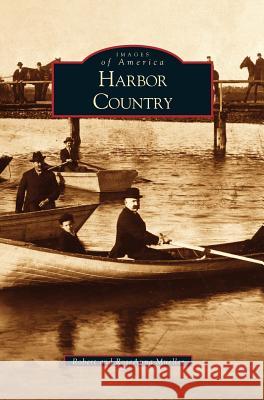Harbor Country » książka
Harbor Country
ISBN-13: 9781531614508 / Angielski / Twarda / 2003 / 130 str.
The eight villages of Southwest Michigan's Harbor Country-Michiana, Grand Beach, New Buffalo, Union Pier, Lakeside, Harbert, Sawyer, and Three Oaks-have evolved from a group of humble frontier communities into a vacation mecca. Just 90 minutes from Chicago, Harbor Country's unspoiled beaches, marinas, antique shops, and shady country lanes have offered a weekend refuge to weary urbanites for years.The New York Times once called Harbor Country "the Hamptons of the Midwest," perhaps because the area draws Chicago's illuminati to its shores. Yet most of the region's first settlers were lumbermen, farmers, fishermen, and railroad workers, and Harbor Country's rustic, small-town ambience remains as their legacy.Through nearly 200 vintage photographs, this book documents the history of Harbor Country and its many roles throughout the nineteenth and twentieth centuries. Once an aspiring Great Lakes port, then briefly a railroad center, as well as a lumbering community that supplied the timber to build Chicago, Harbor Country is revealed as an area with rich history and everlasting appeal.
The eight villages of Southwest Michigans Harbor Country-Michiana, Grand Beach, New Buffalo, Union Pier, Lakeside, Harbert, Sawyer, and Three Oaks-have evolved from a group of humble frontier communities into a vacation mecca. Just 90 minutes from Chicago, Harbor Countrys unspoiled beaches, marinas, antique shops, and shady country lanes have offered a weekend refuge to weary urbanites for years.
The New York Times once called Harbor Country "the Hamptons of the Midwest," perhaps because the area draws Chicagos illuminati to its shores. Yet most of the regions first settlers were lumbermen, farmers, fishermen, and railroad workers, and Harbor Countrys rustic, small-town ambience remains as their legacy.
Through nearly 200 vintage photographs, this book documents the history of Harbor Country and its many roles throughout the nineteenth and twentieth centuries. Once an aspiring Great Lakes port, then briefly a railroad center, as well as a lumbering community that supplied the timber to build Chicago, Harbor Country is revealed as an area with rich history and everlasting appeal.











